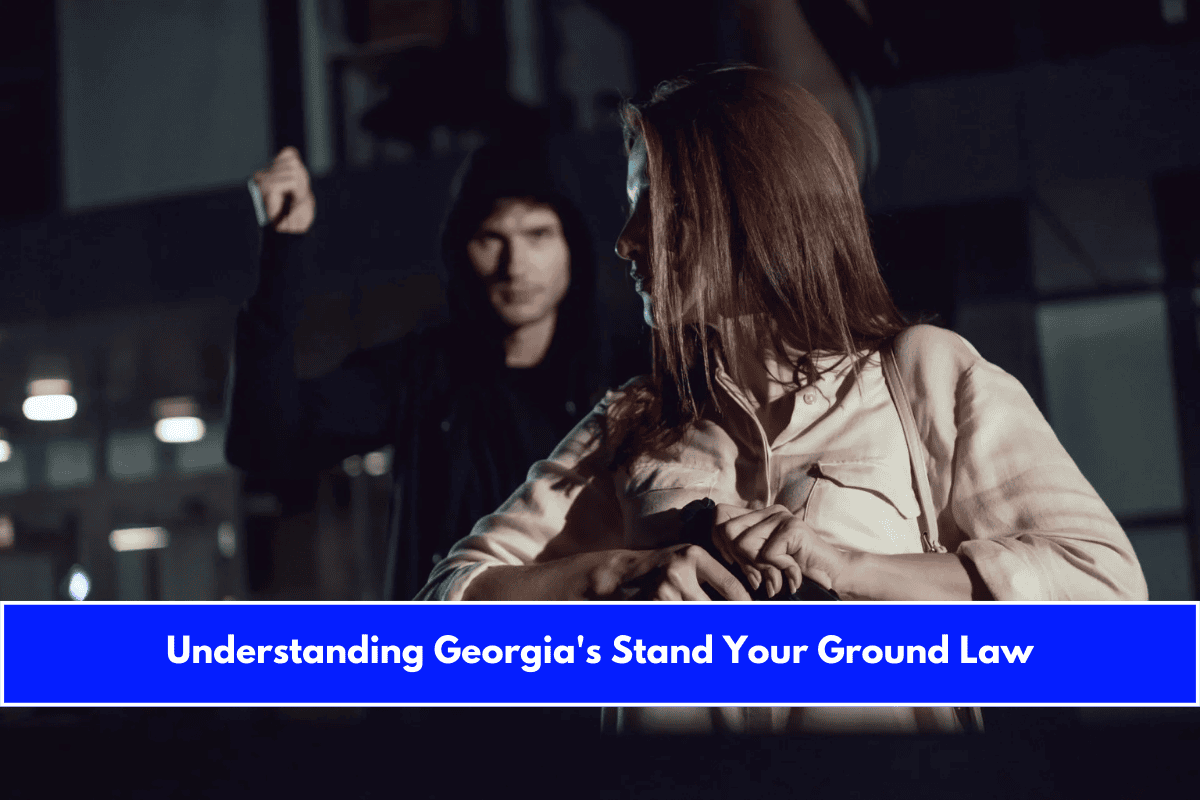Georgia’s Stand Your Ground law is a self-defense statute that allows individuals to use force-including deadly force-if they reasonably believe it is necessary to prevent death, great bodily injury, or the commission of a forcible felony against themselves or others.
Crucially, this law removes any legal obligation to retreat before acting in self-defense, as long as the person is in a place where they have a legal right to be.
Key Provisions of Georgia’s Law
- No Duty to Retreat: You are not required to try to escape, retreat, or avoid a confrontation before using force in self-defense. This applies whether you are in your home, vehicle, workplace, or any public space where you are lawfully present.
- Reasonable Belief: The use of force must be based on a reasonable belief that it is necessary to prevent imminent harm, such as death, serious bodily injury, or a forcible felony (e.g., robbery, rape).
- Scope of Protection: The law covers defense of oneself, others, one’s home (“castle doctrine”), and, in some contexts, property.
- Legal Justification: If you claim self-defense under Stand Your Ground, you must be able to show that your actions were justified and reasonable under the circumstances. The prosecution must prove beyond a reasonable doubt that you were not justified if your defense is challenged in court.
When the Law Does Not Apply
There are important exceptions and limitations:
- Initial Aggressor: If you started the confrontation or provoked the incident, you cannot claim protection under Stand Your Ground.
- Illegal Activity: If you were engaged in unlawful activity at the time, you lose the right to claim Stand Your Ground.
- Mutual Combat: The law does not apply to situations involving agreed-upon fights (e.g., a consensual brawl).
Comparison to the Castle Doctrine
While the Castle Doctrine specifically applies to defending your home, vehicle, or workplace, Stand Your Ground extends this right to any place you are legally allowed to be. In both cases, there is no duty to retreat before using force.
Legal and Social Impact
Georgia is one of 38 states with a Stand Your Ground law, and its provisions are among the most expansive in the country. The law has been subject to debate, with some studies indicating an increase in firearm-related homicides in states with such statutes.
Summary Table: Georgia Stand Your Ground Law
| Provision | Georgia Law |
|---|---|
| Duty to Retreat | No duty to retreat if lawfully present |
| Use of Deadly Force | Permitted if reasonably believed necessary to prevent death, great bodily harm, or a forcible felony |
| Defense of Others | Permitted |
| Defense of Property | Permitted in certain circumstances |
| Initial Aggressor Exception | Cannot claim if you started the conflict |
| Illegal Activity Exception | Cannot claim if engaged in unlawful activity |
| Mutual Combat Exception | Cannot claim in consensual fights |
Georgia’s Stand Your Ground law gives individuals broad rights to defend themselves and others without the obligation to retreat, provided they are not the aggressor or engaged in illegal activity. The law applies anywhere a person is lawfully present and requires that the use of force be reasonable and necessary under the circumstances.
Sources:
- https://en.wikipedia.org/wiki/Stand-your-ground_law
- https://www.jaygwalllaw.com/blog/what-are-the-rules-on-self-defense-in-georgia/
- https://www.georgia-criminalattorney.com/blog/2023/02/when-do-stand-your-ground-laws-apply-in-georgia/
- https://www.criminalandduilawofgeorgia.com/2020/06/09/can-you-stand-your-ground-in-self-defense-in-georgia/
- https://www.atlantanotguilty.com/blog/what-happens-if-you-kill-someone-in-self-defense-in-georgia/











Leave a Reply